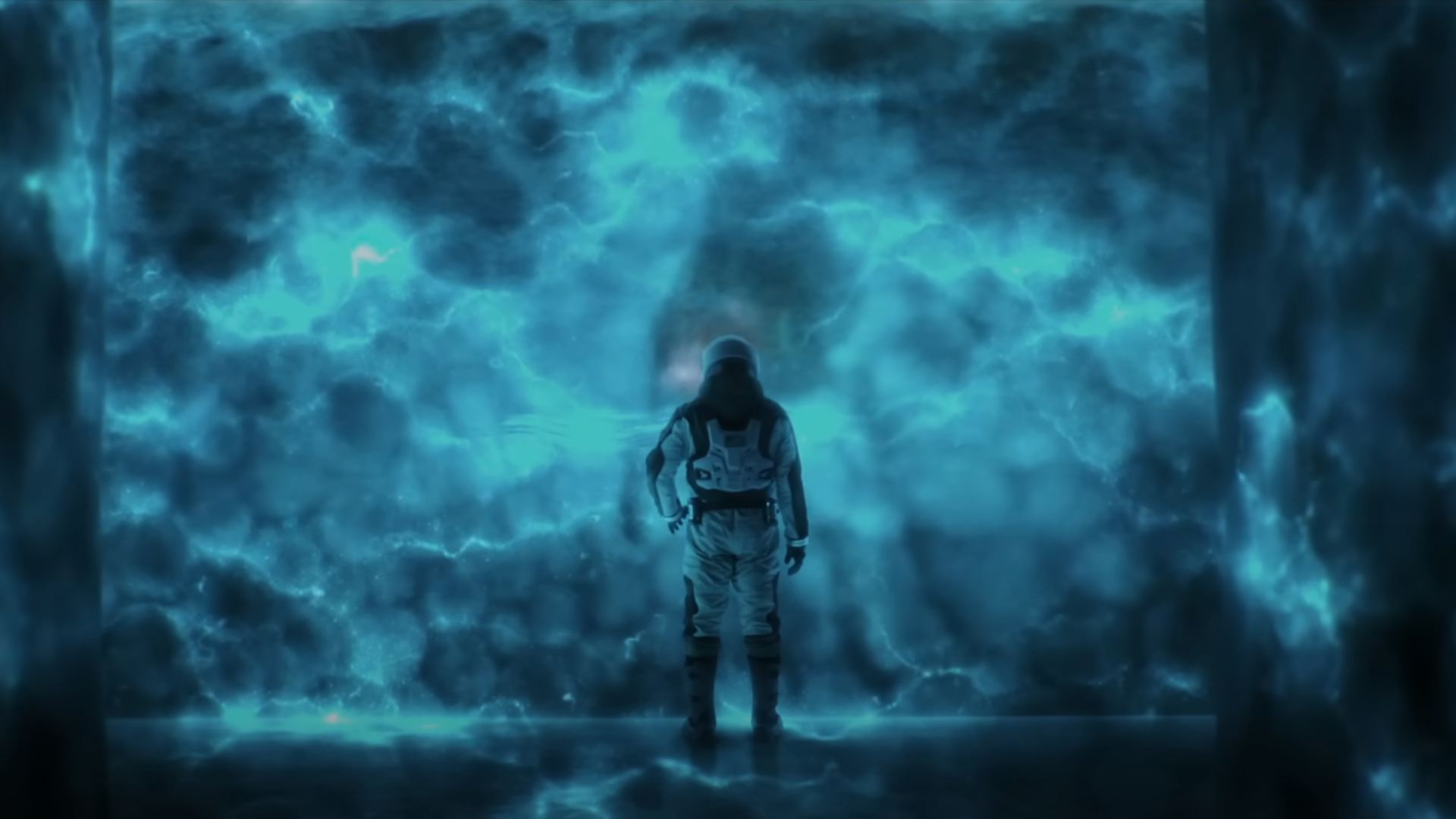This Virtual Reality SpaceBuzz Bus Lets You Feel What It's Like to See Earth from Above
WASHINGTON — My spacecraft flew through the shadow of the moon and into orbital sunrise, and there it was: Earth hovering as a blue marble in the blackness of space.
I began to think of the immortal words of astronomer Carl Sagan: "That's here. That's home. That's us. On it [is] everyone you love, everyone you know." And to my delight, my commander, Dutch astronaut André Kuipers, began to quote Sagan, almost word for word.
I wasn't really in space, of course. That would be an incredible opportunity, but for now, this is the next best thing. I experienced the "overview effect" of seeing Earth as a whole planet last week here at the International Astronautical Congress, where Dutch nonprofit SpaceBuzz toured a minibus outfitted with a virtual reality show hosted by an avatar of Kuipers.
Related: Earth Pictures: Iconic Images of Earth from Space
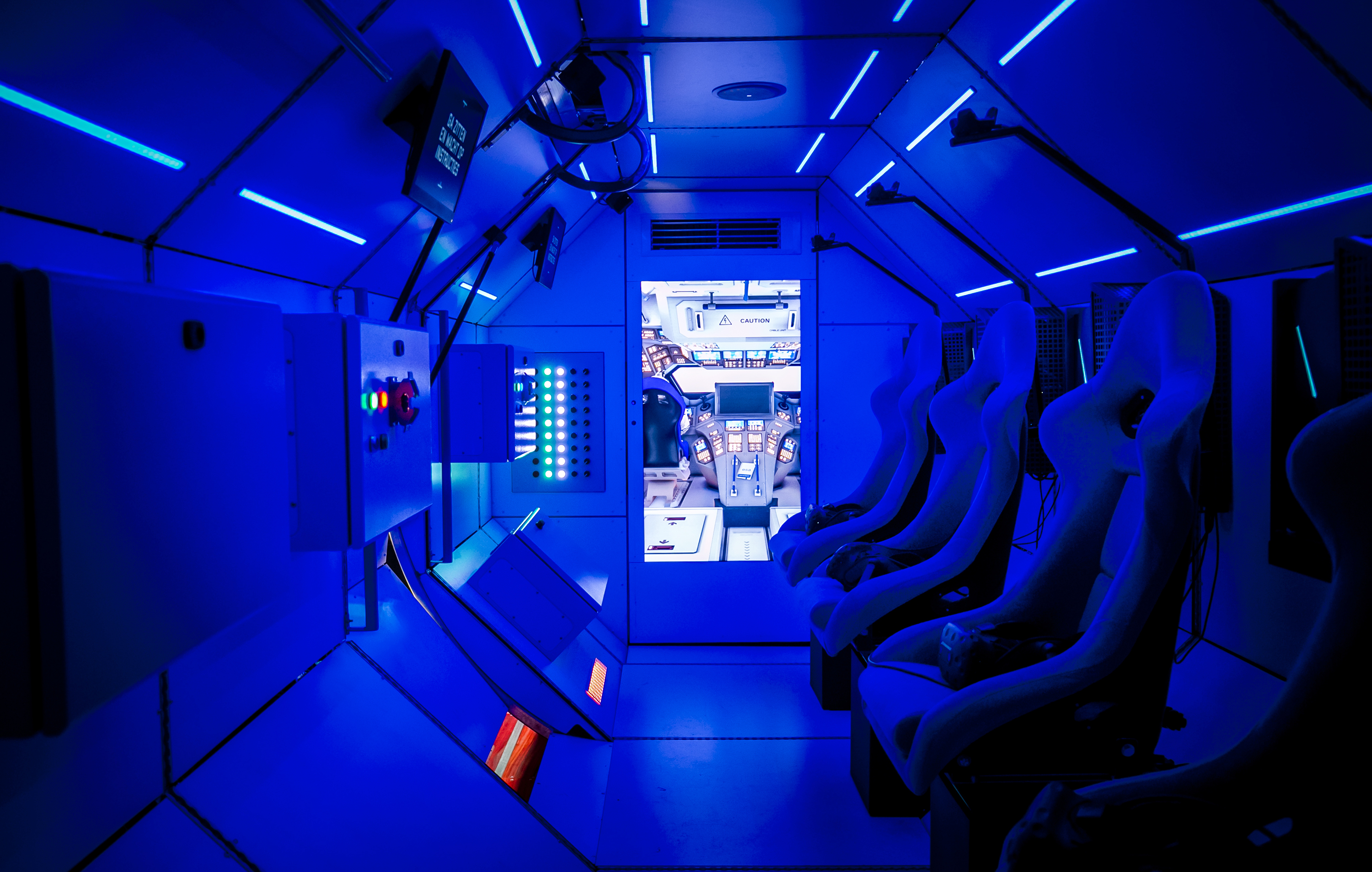
SpaceBuzz's story starts with Wubbo Ockels, the first Dutch astronaut in space, on shuttle mission STS-61A in 1985. On his deathbed in 2014, Ockels said: "If I could transfer the experience I had in space … then that would change your life on Earth," according to SpaceBuzz board member Zoran van Gessel.
"That is the overview effect," van Gessel said. "It's obviously too expensive to send people in space by the billions, but with 3D virtual technology, we can mimic that."
Thousands of Dutch children have already experienced this virtual reality show, but their journey doesn't begin by strapping on the virtual reality helmets. Rather, it starts in the classroom. They undergo a mini "astronaut training school," where they, sometimes with the help of adults, pass basic tests about what it would be like to live in space.
Breaking space news, the latest updates on rocket launches, skywatching events and more!
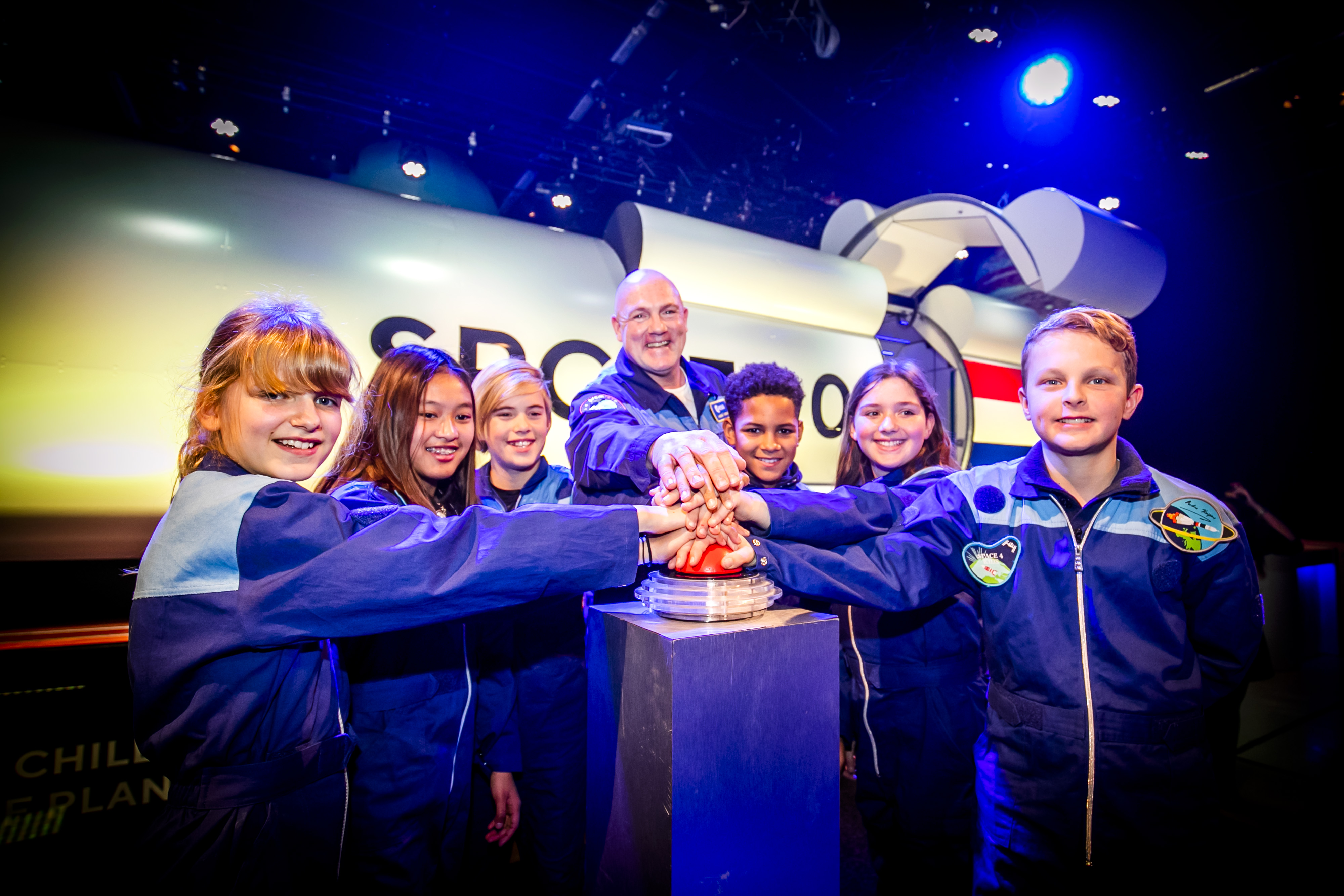
Then comes the fun part for these 10- to 12-year-olds, who are very familiar with 3D apps and games. They sit in the chairs of the SpaceBuzz bus, grab their headsets and find themselves immediately inside a spacecraft. Kuipers' avatar guides them through launching into space. They "fly" around the world, witnessing sights such as shimmering auroras and fishing boats on the sea. Occasionally, space hardware — including the International Space Station — floats by. The journey culminates with a jaunt to the moon, where Earth appears dramatically different from so far away.
SpaceBuzz wants to expose children to STEM (space, technology, engineering and math) topics, although the nonprofit says whatever path these kids choose is just fine. "We want to make sure that children respond to the whole space experience in their own way," van Gessel said, acknowledging that some kids may want to go into different fields while still remembering the experience of space.
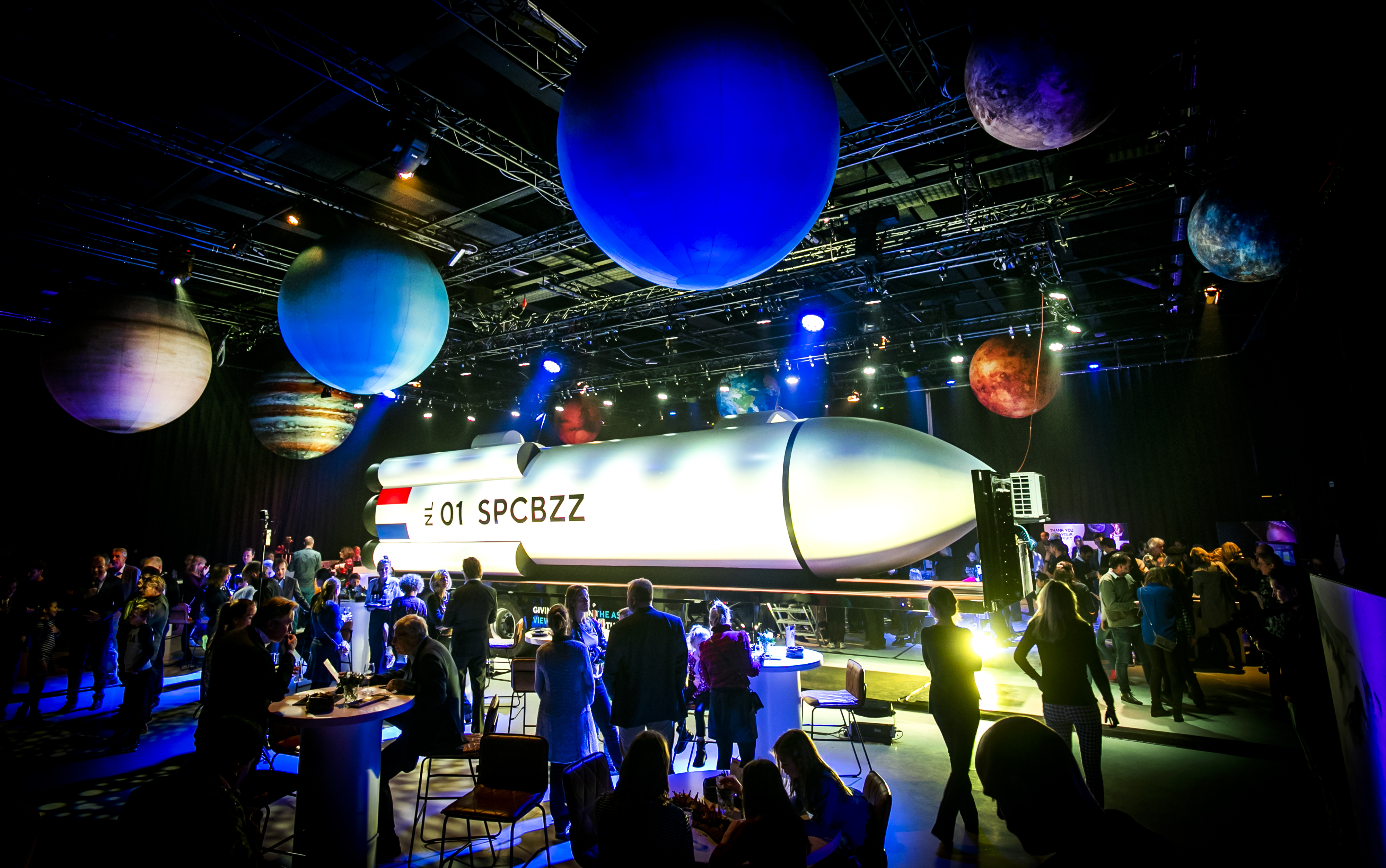
The SpaceBuzz bus is the first of its type, supported by a group of private individuals (including the Kuipers family). SpaceBuzz representatives said the proof of concept has been so successful that the company plans to build a second bus and extend the experience online to bring it to more children. Future iterations of the virtual reality experience could include interactive elements, allowing children to ask and answer questions about space during their mission.
In addition to benefiting children, the venture uses 3D technology to essentially replicate in-demand astronauts like Kuipers. "We learned afterwards that André, being the only Dutch astronaut alive, gets hundreds and hundreds and hundreds of requests year after year to explain to children about space, but obviously he can't do it. It's not workable," van Gessel said.
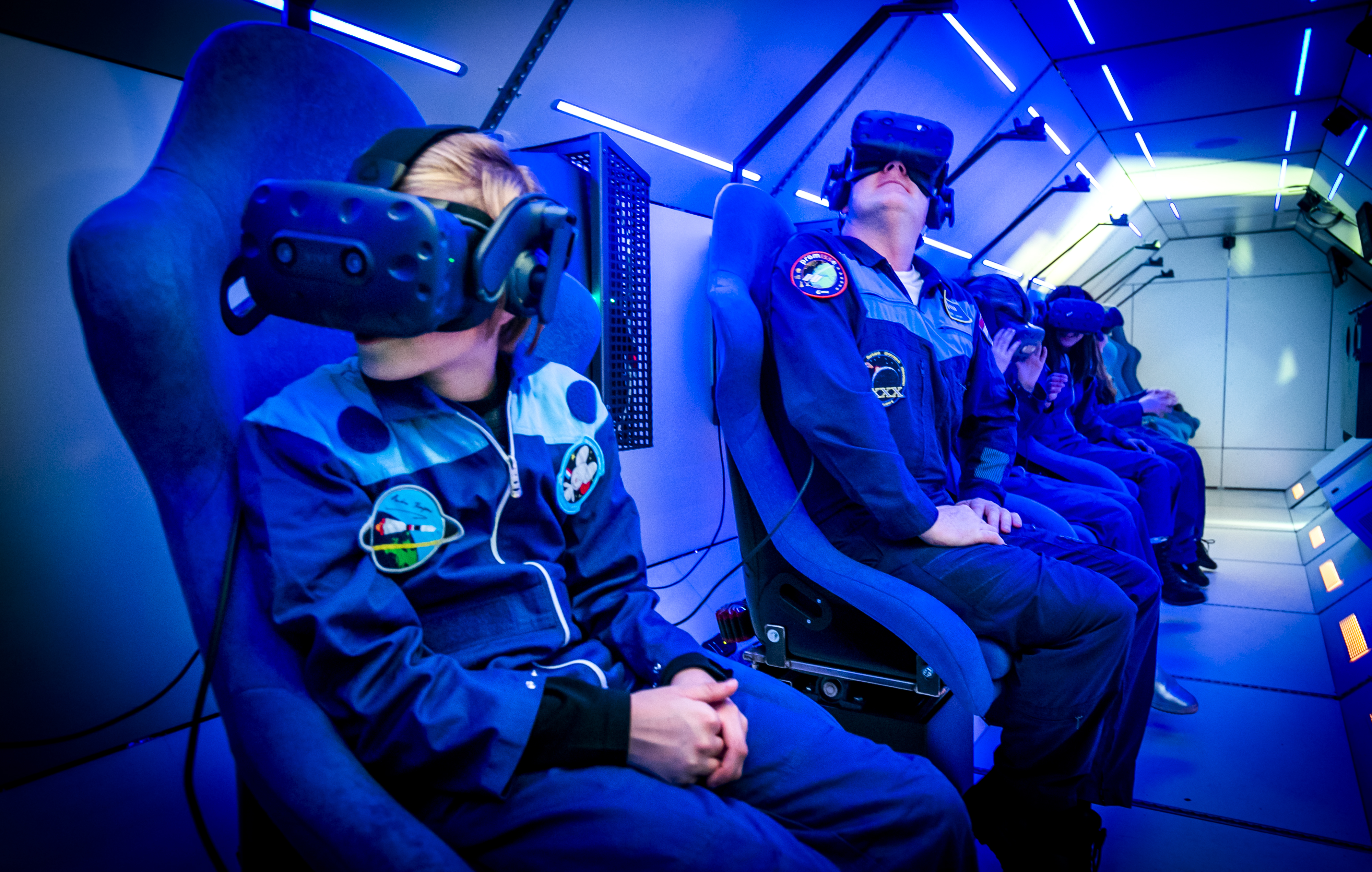
SpaceBuzz recently showcased its technology at a gathering of astronauts, the Association of Space Explorers, in Houston, where space flyers, including Catherine "Cady" Coleman and Chris Hadfield, got to experience the show for themselves.
"We can share it with any country, or any astronaut, or any organization, that is willing to support our goal to share the overview effect with as many children as possible," van Gessel said. "But what we've learned is, it also works on adults," he added with a grin.
- Earthrise: 50 Years Ago Today, Apollo 8 Changed Humanity's Vision of Earth Forever
- Stunning Photos: Earth from Space by Astronaut André Kuipers
- Earth Day 2019: These Amazing NASA Images Show Earth from Above
Follow Elizabeth Howell on Twitter @howellspace. Follow us on Twitter @Spacedotcom and on Facebook.
Join our Space Forums to keep talking space on the latest missions, night sky and more! And if you have a news tip, correction or comment, let us know at: community@space.com.

Elizabeth Howell (she/her), Ph.D., was a staff writer in the spaceflight channel between 2022 and 2024 specializing in Canadian space news. She was contributing writer for Space.com for 10 years from 2012 to 2024. Elizabeth's reporting includes multiple exclusives with the White House, leading world coverage about a lost-and-found space tomato on the International Space Station, witnessing five human spaceflight launches on two continents, flying parabolic, working inside a spacesuit, and participating in a simulated Mars mission. Her latest book, "Why Am I Taller?" (ECW Press, 2022) is co-written with astronaut Dave Williams.
